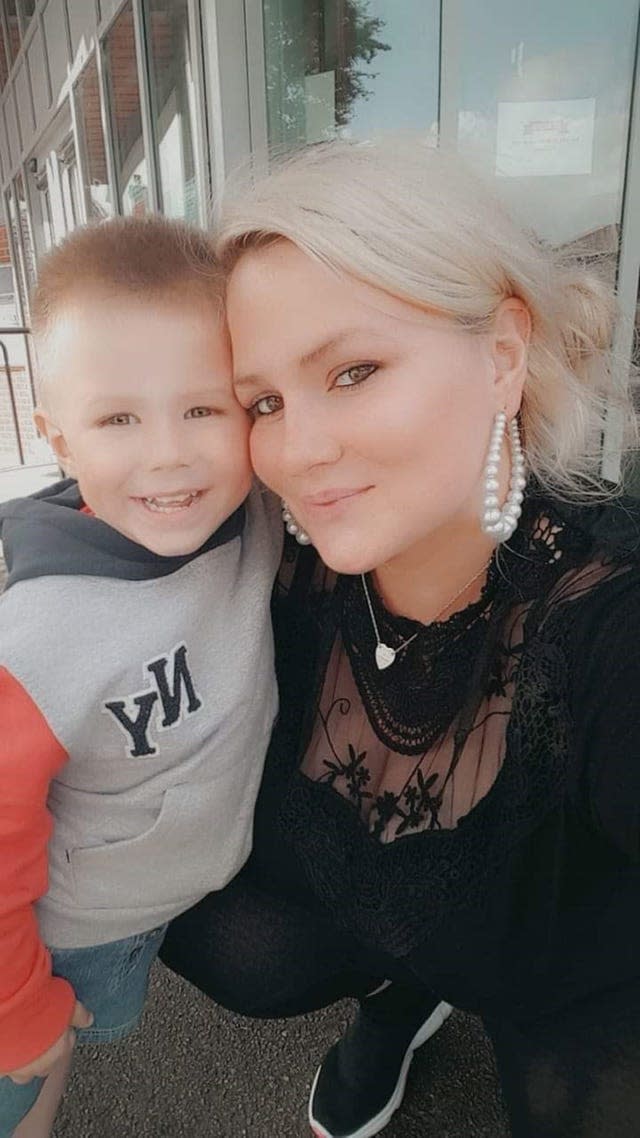Long Covid ‘severely’ affecting families of those suffering – study
More must be done to support families of those who have been affected by long Covid, researchers have said.
Experts have said that families of those who are still ill for weeks, or months, after infection can be “severely affected”.
A new study, published in the journal BMJ Open, examined the experiences of those who have struggled with symptoms after infection.
Researchers also quizzed family members.
They found that people’s quality of life was being impacted by the ongoing effects.
Academics from Cardiff performed an online survey of 735 people with long Covid, with an average age of 48, half of whom were from Europe.
Four in five (81%) reported pain and discomfort and 80% reported problems performing their usual activities.
Meanwhile 69% reported symptoms of anxiety and depression while 56% said they had ongoing problems with mobility.
Those who were admitted to hospital, and people who had pre-existing health conditions prior to infections, reported more problems with mobility and usual activities.
Researchers also surveyed 735 family members and found that 83% reported that their loved ones’ ongoing symptoms had impacted on family life, 93% reported they were worried and 82% said they were “frustrated”.

Lead author Rubina Shah, from Cardiff University’s School of Medicine, said: “We have all seen the devastating impact long Covid can have on survivors, but we have heard very little about how it can affect the lives of their nearest and dearest.
“Our study reveals a domino effect from the Covid patient themselves through to all those closest to them, affecting everything from how worried and frustrated they feel to their ability to enjoy family activities, or for partners the impact on their relationship and sex life.
“The impact of Covid can be profound and long lasting; there needs to be a holistic support system that is sensitive to the needs of both survivors and their families to help ease this burden.”
Full-time mother Billie-Jo Redman, 27, from Essex, suffers from fatigue, brain fog and daily waves of pins and needles, and at times has such a high heart rate she has to wear a 24-hour heart monitor.
“My life feels like it’s over,” she said.
She added: “The hospital just doesn’t know what to do with me.

“They can see my heart rate is way too high, but they don’t know why.
“Everything has changed.
“I used to go on adventures with my son Roman, now I have days where I can’t even get him to school.
“It’s had a tragic effect on our daily lives.
“There needs to be more support for families.”
It comes as scientists in Oxford and Sheffield found that signs of Covid can still be spotted on the lungs nine months after infection.
Using advance imaging techniques, experts found abnormalities in the lungs of some Covid-19 patients more than three months, and in some cases, nine months, after leaving hospital, when other clinical measurements were normal.
In a paper published in the journal Radiology, experts said that hyperpolarised xenon MRI scans had shown the damage which routine CT scans and other routine tests had not detected.
Some of the patients had been told that their lungs were back to “normal”.
The study’s principal investigator Fergus Gleeson, professor of radiology at the University of Oxford and consultant radiologist at Oxford University Hospitals NHS Foundation Trust, said: “Many Covid-19 patients are still experiencing breathlessness several months after being discharged from hospital, despite their CT scans indicating that their lungs are functioning normally.
“Our follow-up scans using hyperpolarised xenon MRI have found that abnormalities not normally visible on regular scans are indeed present, and these abnormalities are preventing oxygen getting into the bloodstream as it should in all parts of the lungs.”


